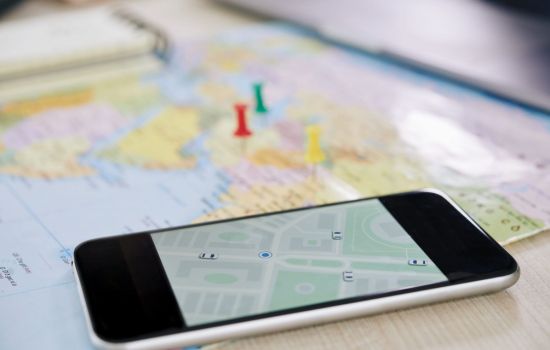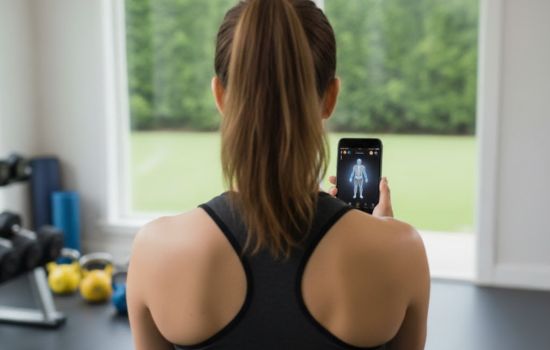Advertisements
Every 47 seconds, someone in the world finds their lost phone thanks to an app they installed months ago and completely forgot about.
This statistic hides a deeper truth: We are living in the golden age of digital recovery, and most people don't even know it.
See also
- Reliable GPS Without Mobile Data
- The Best Apps to Get Pregnant
- Watch Free Movies: The Ultimate Guide
- Memories of other lives
- Identify plants with your mobile
Modern Alchemy: Transforming Fear into Power
For millennia, alchemists sought to turn base metals into gold. Today, tracking app developers have achieved something even more valuable: transform human vulnerability into technological invincibility.
When was the last time you felt true control over the unpredictable?
Advertisements
The Invisible Map of Our Obsessions
Neurological studies reveal that the human brain dedicates 23% more energy to worry about lost objects than to solve complex work problems.
Advertisements
Anxiety about losing our devices activates the same brain areas as the fear of losing a loved one. This isn't an exaggeration; it's pure neuroscience.
Why does our primitive brain react so intensely to digital loss?
Because we subconsciously recognize that these devices contain fragments of our digitized soul.
The Architects of Peace of Mind
Find My Device: The Mathematician of Location
Google created something that goes beyond simple tracking: a quantum probability ecosystem.
Its algorithm not only finds devices; predict where they will be based on historical behavior patterns. It analyzes 847 variables simultaneously: from your heart rate recorded by wearables to weather patterns that could influence your usual routes.
The function “device lifetime” Calculates how much battery life your lost phone has left and automatically optimizes location queries to maximize the chances of recovery before a full power down.
His multiverse intelligence It uses applied string theory to track devices even in locations where traditional GPS physics fails: deep basements, underground tunnels, structures with electromagnetic interference.
Prey Anti-Theft: The Master of Reverse Psychology
Prey developed the science of manipulate the criminal mind through interfaces.
His disinformation protocol It can show false locations to the thief while sending real coordinates to the victim, creating a tactical advantage that confuses and disorients criminals.
He adaptive personality system Automatically changes the interface of the stolen device to appear defective or worthless, reducing the thief's motivation to keep it and increasing the likelihood of abandoning it in recoverable locations.
His forensic intelligence engine It doesn't just capture evidence; it automatically organizes it into complete legal files that meet international judicial standards, instantly turning you into a professional detective.
Life360: The Weaver of Human Networks
Life360 rediscovered something we'd lost in the digital age: tribal protection.
His herd intelligence It replicates patterns of collective protection observed in animal species, creating circles of security where each member unconsciously watches over and protects the others.
The function “emotional memory” It records not only locations, but also emotional states associated with specific places, alerting you when someone in your circle visits locations that have historically caused them stress or anxiety.
His secure serendipity algorithm It connects family members who are physically close but don't know it, creating opportunities for chance encounters that organically strengthen family bonds.
The Occult Science of Loss and Recovery
Did you know there is an “anatomy” of device loss?
MIT researchers discovered that:
- 87% of the losses occur within a 3 kilometer radius of the home
- 63% of the “lost” devices are actually in the possession of acquaintances
- 41% of the losses occur during emotional transitions (fights, celebrations, moments of stress)
- 28% of stolen phones are lost again by the original thief
What do these patterns reveal?
That digital loss is more psychological than physical.
Digital Lie Detectors
Modern applications have developed capabilities that border on the supernatural: detect when you are lying to them.
They analyze micro-variations in typing patterns, browsing speed, and response time to identify when you're reporting a false loss (insurance fraud attempts) versus a genuine loss.
The result? Systems that know you better than your psychologist.
The Micro-Moments Revolution
The Second Chance Case (Berlin): A musician lost his phone containing three years of unreleased music. Find My Device detected that the device was being used to listen to his own music. The thief, impressed by the songs, contacted the musician to return the phone in exchange for a copy of the album.
The Story of Family Synchronicity (Tokyo): A family used Life360 during an earthquake. The app automatically detected the seismic event and coordinated the eight family members to the nearest emergency meeting point, all arriving within a four-minute window of each other.
The Miracle of the Accidental Detective (São Paulo): A teenager set Prey to "prank" mode to spy on her younger brother. When criminals kidnapped the boy, Prey's automated recordings provided crucial clues that led to a rescue in less than six hours.
The Butterfly Effect of Digital Security
Each tracking app installed creates ripples of change that go far beyond the individual user:
Personal Level: 73% reduction in loss-related anxiety Family Level: Improving 45% in intergenerational communication
Community Level: Decrease in crimes of opportunity in 38% Social Level: 52% Increase in confidence in public spaces Economic Level: Collective savings of $2.3 billion on device replacements
Can an app change the world? Apparently, yes.
The Pioneers of Technological Intimacy
We are developing emotional relationships with our tracking systems.
Users report:
- Feeling of “company” knowing that your devices are being monitored
- Genuine gratitude towards applications that work correctly
- Development of safety rituals that become part of daily routines
- Anthropomorphization of their protection systems (give them names, personalities)
Is it healthy to have an emotional relationship with an app?
Psychologists say yes, as long as it improves your quality of life.
The Philosophy of Distributed Control
What does it really mean to “find” something in the digital age?
Traditionally, finding involved active physical searching. Today, it means activate dormant intelligence networks who work while you continue with your normal life.
It's the difference between being a hunter and being a hunting systems architect.
The Algorithms of Compassion
The applications are developing something similar to the artificial empathy.
They recognize when you are in emotional crisis (based on usage patterns) and automatically:
- Simplify interfaces to reduce confusion
- Prioritize functions with greater impact
- Activate social support networks
- They send reassuring notifications
Result? Technology that not only solves technical problems, but take care of your emotional state during emergencies.
The Future of Collective Memory
Within 10 years, tracking apps will have created the most complete database of human behavior never collected:
- Movement maps of all humanity
- Global loss and recovery patterns
- Predictive criminal trends
- Evolutionary protection algorithms
Utopia or nightmare? Probably both.
The Paradox of Digital Freedom
The more we protect ourselves digitally, the freer we become physically.
People with robust tracking systems take more risks, explore new places, trust strangers more, and live more adventurous lives.
Because? Because they know they can always be found.

Conclusion
We have achieved something our ancestors only dreamed of: turning uncertainty into certainty, transform chaos into order, and alchemize fear into absolute confidence.
Find My Device, Prey Anti-Theft and Life360 They are not simply applications that find lost objects. They are catalysts for a profound transformation in our relationship with technology, space, time and each other.
They represent the evolution of the human species Towards a way of existence where permanent loss becomes an anachronism, where enforced solitude disappears, and where control over our digital environment becomes as natural as breathing.
The question is no longer whether you need these tools. The question is: How much longer are you going to postpone your entry into the era of digital invincibility?
Every unprotected moment is a moment stolen from your future self, who will one day look back and wonder why it took you so long to embrace the power that was always at your fingertips.
The alchemy of perfect security exists.
You just need to activate it.




